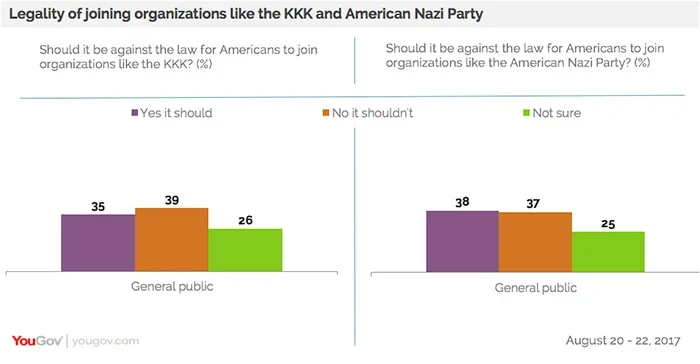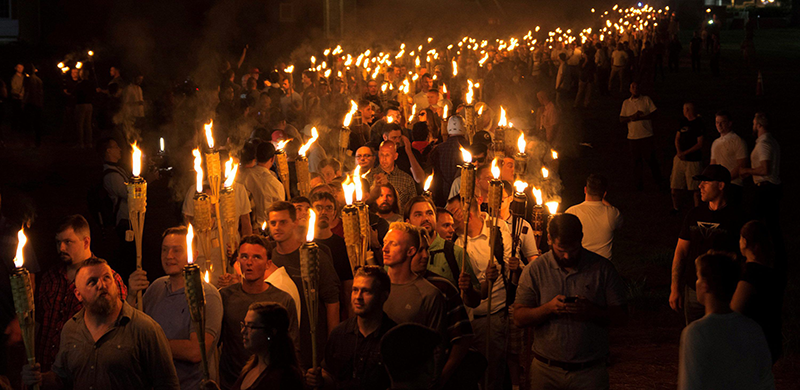Plus, more than a third of Americans think it should be illegal to join the KKK or American Nazi Party
Americans have always had a problem with free speech. Those in the latest Economist/YouGov Poll are no exception. While the First Amendment may protect speech, many Americans would not allow dangerous speech or speech many of them disagree with.
That’s especially true for speech associated with a group like ISIS. Most Americans – Democrats and Republicans – would forbid an ISIS supporter from making a speech in their community. It matters little whether someone is personally worried about becoming a terror victim or whether their expectations for an attack on U.S. soil is high or low. All groups oppose ISIS speech.
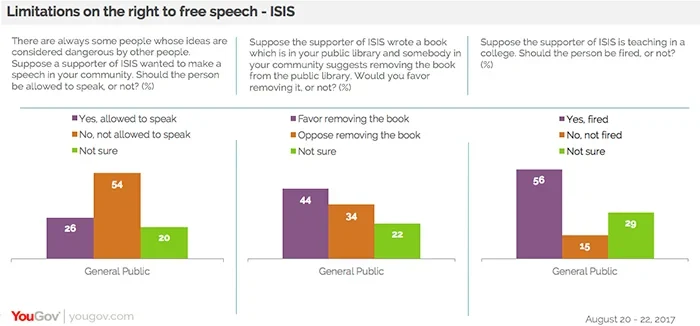
There are similar reactions when it comes to whether or not a book written by an ISIS supporter should be removed from the public library, though in this case, more than a third oppose removing such a book. But most would fire any ISIS supporter teaching in a college. On these two questions there are party differences: Republicans are 14 points more likely than Democrats to want to remove an ISIS supporter’s book from the public library and 13 points more like to fire the college teacher. But both would remove the book and fire the teacher.
In the past, the General Social Survey has asked about members of multiple groups giving speeches. The support or opposition to free speech depends on the group asked about – with an anti-American Muslim the least likely to be given free speech protection.
The GSS hasn’t asked specifically about the Ku Klux Klan, but racist speech is less acceptable in their polls than atheist, militarist, pro-gay (which has become dramatically more acceptable since the 1970’s) or Communist speech. In this poll, Americans would not allow a member of the Klan to speak, are divided on whether or not they would remove a Klan book from the public library, and would fire a college teacher who was a Klan sympathizer.
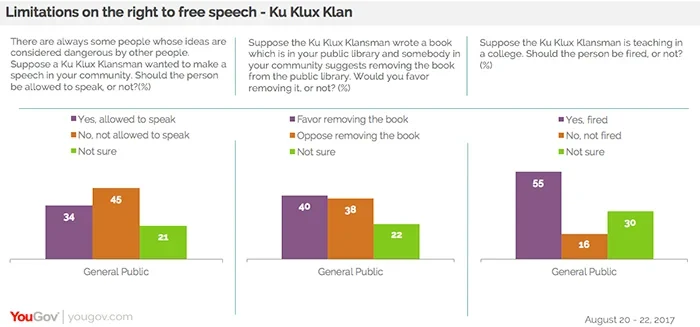
Again, this is not necessarily a matter for partisan debate. Democrats and Republicans would ban a Klan speech, remove a Klan supporter’s book, and fire a Klan sympathizer from a college teaching position. Trump voters seem to be the most accepting of them: narrow pluralities of Trump voters would allow the speech (49%-39%), and keep the book on the shelves (46% would not remove the book, 39% would).
Feelings are similar when it comes to the free speech rights of neo-Nazis. Americans don’t think they should have them. The public would ban the speech, remove the book, and fire the college teacher. Again, Democrats and Republicans agree.
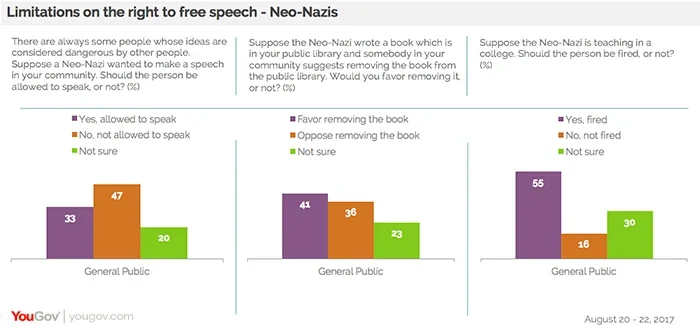
Neo-Nazis and the KKK are decidedly unpopular. Just 6% have a favorable view of the Ku Klux Klan, and 5% are favorable towards neo-Nazis. And these low ratings are across the board – whites, blacks, Democrats, Republicans, Trump voters and Clinton voters.
The protection of unpopular speech – such as American Civil Liberties Union’s defense of the Charlottesville white nationalist protestors – is itself not popular. A third approve of the ACLU’s actions, 43% disapprove. Democrats, who generally think better of the ACLU than Republicans do, are slightly more likely than Republicans to disapprove.
The Constitution also protects the right of association, and here the public divides on whether or not membership in the Klan or in a neo-Nazi group should be allowed. Just about as many would make it illegal for Americans to join these groups as would permit it.
